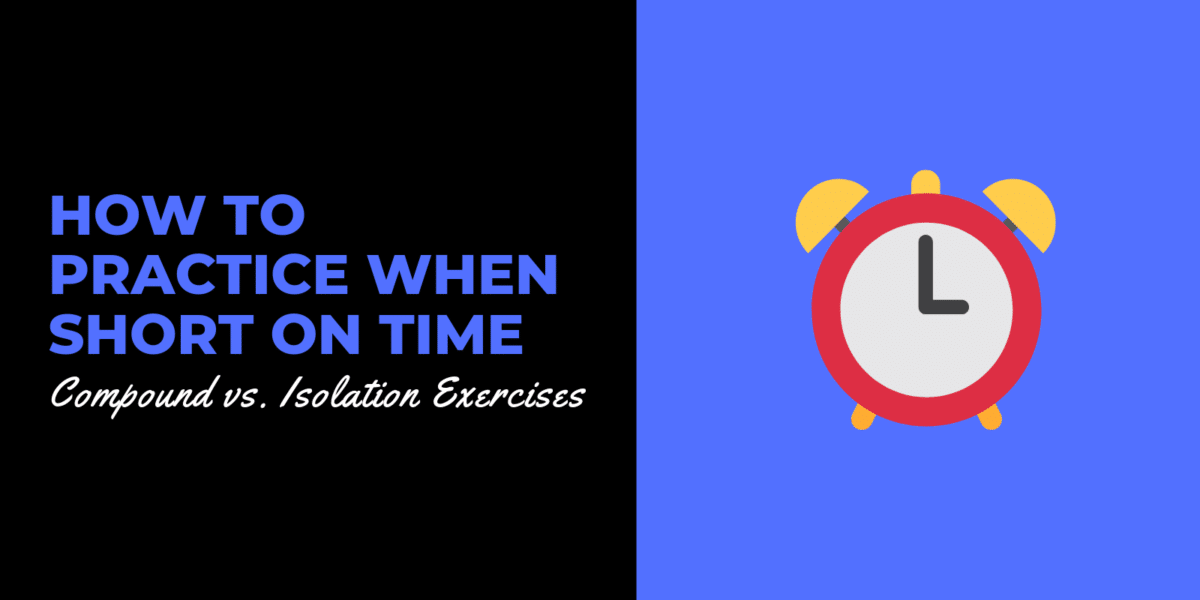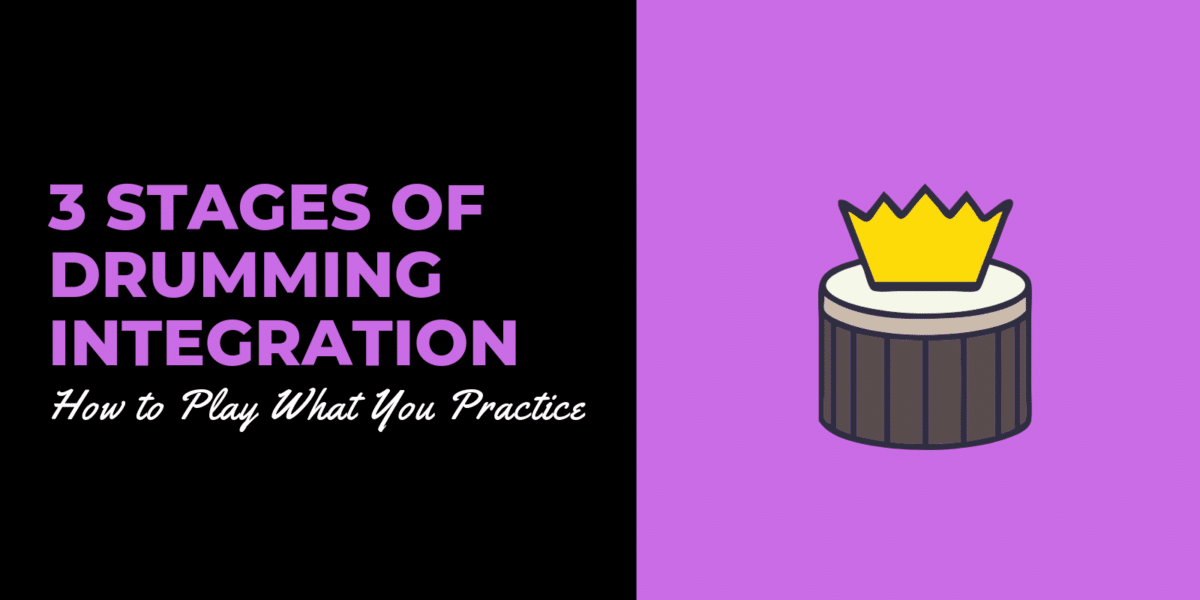“The only difference between you and myself is that I’ve had more time to practice.”
This was said to me by one of my drum professors when I was complaining about my progress with learning the drums. At the time, his words didn’t speak to me as much. But that was a while ago, and younger musicians are known to be impatient. We want to be good, and we want it now.
Many years later, things are starting to make more sense. It seems like everyday now that another one of my peers lands an amazing gig, makes more TV appearances, and continue to crush it. This wasn’t happening back when we were in college, or even after graduation. So what could be the cause?
The answer is simple. More time has passed.
The Simple Equation for Success
In all my years of drum education, I’ve seen one constant factor in determining how successful a student will be at learning the instrument: Practice. Young or old, experienced or not, the students that learn the fastest are the ones that practice the most.
After observing this, I came up with this simple formula to determine how quickly someone will learn:
Drum Skill = Time Spent in Practice
I see the majority of my students every week, and it’s the ones that put in the most practice time that end up learning the quickest.
The Myth of the Prodigy
When people learn that I’m a drummer, I often hear, “I always wanted to play the drums, but I’m not musically inclined”. At some point, they bought into the myth that learning to play an instrument is only for those that were born with natural talent. This bums me out, as it couldn’t be farther from the truth.
In all the students I have taught, I would estimate that only about 1% of them appear to have a natural talent for the instrument. Truth be told, everyone learns at their own pace. Some faster than others. But very rarely do I get someone that can play everything as I show it to them.
The idea that all musicians started out at prodigies is a myth.
There are a lot of musicians out there, and there is certainly no way that all of them were born child prodigies at the instrument. Every amazing drummer once started out knowing nothing. The only reason anyone is good now is because they put in the time and practiced.
Why Some Students are Better Than Others
If you were to bring me two young students of the same age, neither of them having played drums before, but one of them had two years of piano lessons prior, I would bet my life on the kid with the piano training to learn faster from the start. This is because that student has already put in more practice time than the other.
At the same time, if the student with no previous musical training practices 20 minutes a day, while the other put in 30 minutes once a week, the seemingly disadvantaged student will quickly surpass the other. This is because that student is following the formula: Drum skill = time spent in practice.
Habits and How They Slow us Down
For those lucky enough to have spent some time in music lessons, the idea of practice is understood. Others might have a harder time adjusting. Practicing music is like failing over and over again until you get it. For many, the idea of failure is uncomfortable. So they give up.
In many ways, practicing music IS painful. This is why so few do it. They have built a habit of avoiding the uncomfortable. So when someone sits down to practice, they quit the second they make a mistake.
Bad habits can form very quickly. But, so can good ones. Forcing oneself to confront their lack of understanding over and over will lead to a habit and attitude of deliberate practice. You might even come to enjoy it.
Practice as an AntiFragile System
You might have heard the buzz word ‘antifragile’ before. This concept was developed by Nassim Taleb and describes something that increases in strength and capability as it experiences stress and failure.
Weight lifting is an anti-fragile system. You push hard and tear up your muscles making you sore the next day. But this destruction leads to new muscle growth and an overall healthier system.
Practicing music is very much an anti-fragile system as well. You sit in a room alone and play your instrument poorly over and over again seemingly getting no where. However, with time, your skills increase, and you become a better musician.
Follow the formula and success will follow.
Try it For Yourself
Hopefully you are no longer convinced that all of your favorite musicians were born with their instrument in their hands. However, for the skeptical, remember that I also started out as a terrible drummer. Everyone does. The only way to really test this theory is try it out yourself.
Practice is always the number one determining factor when it comes to how good someone can become.
It’s worth mentioning that the formula never changes, no matter your age or skill level. If you plateau, more practice will help you push through as well.
Or course, not all practice time is equal, and there is a large difference between deliberate and passive practice. But learning how to practice will be left for another discussion.
Let me know how it works for you.









Leave A Comment